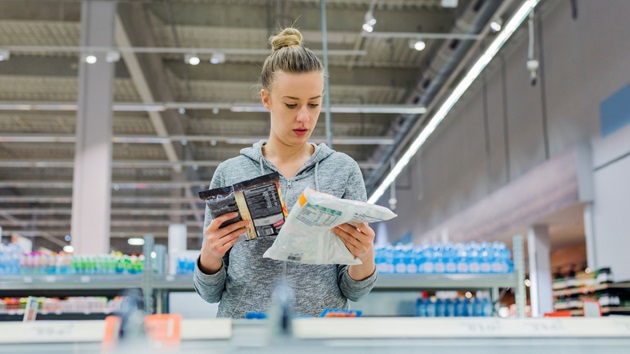The biannual survey was conducted online using large nationally representative samples across 23 markets, between 31 January and 19 March 2020. Countries surveyed in the Asia Pacific region include China, Japan, New Zealand, Australia and Singapore.
The top six sustainable seafood consumer trends in 2020
1 – Concern for climate change dominates
It’s no surprise that climate change is the top environmental concern in all markets in the region except for China, where air pollution is number one.When it comes to concern for the ocean, in China, New Zealand and Australia we see the same pattern (pollution of the ocean, overfishing and the effects of climate change on the ocean) with a significant increase in those who see the effects of climate change as a worrying environmental issue since 2018. In Japan and Singapore, the effects of climate change on the oceans comes in second (ahead of overfishing).
2 – Consumers are switching to sustainable seafood
Across the region, 61% believe that in order to save the ocean, we must consume fish and seafood only from sustainable sources. Three in ten seafood consumers in Asia Pacific think that their favourite fish species will not be available to eat 20 years from now.We are also seeing some interesting trends on switching brand and products for environmental reasons, switching to another species or reducing seafood consumption altogether.
3 – People see through self-made claims
What is also coming through is a great thirst for more information on sustainability and traceability of fish and seafood products. Two-thirds agree that claims about sustainability should be labelled by an independent organisation which is what the MSC as an organization clearly fulfills. But only a third say they notice ‘ecolabels’. While we have seen some outstanding participation in the MSC program from brands and companies in the region, more still needs to be done.4 – Awareness and trust in independent labels is increasing
For more than 20 years now, the MSC has connected fishers, business and consumers who care about the future of our oceans. Today, more than 17% of the world’s wild marine catch is MSC certified sustainable across 36 countries. There has been a substantial increase in fisheries engaged in the MSC program, and the number of products with the MSC blue fish tick has doubled in the past five years (18,735). Indeed, retail sales of MSC-labelled products have now hit USD$10bn. All of which demonstrate the growing consumer demand for sustainable products.Since 2018, awareness of the MSC blue fish tick has increased significantly
• Australia, 27% to 38%;
• China: 39% to 56%;
• Singapore: 26% to 33%;
• Japan: 12% to 19%.
This is also true for other credible, independent third-party labels with growing awareness of ASC, FSC and Fairtrade. In Australia & New Zealand, we’ve established the Trusted Labels Group to find ways to collaborate for the greater good.
5 – Young shoppers are most likely to take action
The findings are also showing some interesting seafood consumption trends for 18-34 old’s. This is an age bracket where people are become more independent, mobile, are seeking new experiences and understand that their values dictate their purchase choices. This could be anything from reducing their consumption to switching from one brand or product to another or substituting the type of seafood they eat.This age group is active on social media – so we engage with them using this medium. Having ambassadors and advocates are also another way engaging with this group. In Australia, we work with Laura Wells, marine biologist, model, surfer and Nicola Tsiolis, Ocean Youth Ambassador who established the Sea Change Network with a burning passion for the ocean. In Korea, we have the likes of WookJai Jung, musician & green activist and TaeYoon Kim, a chef. In China, we work with Chef Otto, a star ambassador. In Japan, a 40 second manga cat video was so popular as it went viral across popular personalities and celebrities including brands like McDonald’s.
6 – The next generation is key to ensuring a future full of fish
The research has shown us that education is critical and to this effect, we see the importance of instilling the values of conscious consumerism from childhood and have launched our education initiatives in Australia (Saltwater Schools) and New Zealand (Te Kawa o Tangaroa). In Singapore, the Polytechnics Institute have MSC content in their syllabus.The youth of today would be the first generation of people having to think hard about the food they eat. Whether it is healthy, antibiotics free, organic, free of animal cruelty, environmentally friendly and the list goes on! I grew up in what I call the golden years – and I say that with some level of nostalgia and hope that we can return to that. I don’t recall worrying about any of this when we were having our meals, as all we cared about was if the food was delicious.
COVID-19 will have a lasting impact on shopping habits
The COVID-19 pandemic has fundamentally changed the world as we know it. People are living differently, buying differently and in many ways, thinking differently, most of which I expect will remain post pandemic. Supply chains have been tested. The travel, hospitality and food service sectors distressed. Consumers across the globe are looking at products and brands through a new lens.While purchases are currently centered on the most basic needs, people are shopping more consciously. Digital commerce has also seen a boost as new consumers migrate online for grocery shopping – a rise that is likely to be sustained post-outbreak. I used to like to see, touch and feel the products I buy but during the pandemic, I switched to online grocery shopping which I now will stick to due to convenience and familiarity.
There is also a ‘buy local’ trend more so than before due to trade limitations, which I believe will continue to be relevant into the longer term. More than ever, food and medical security, financial security and personal safety of self, family and friends will be leading priorities. Brands and organizations will need to interact with their consumers purposefully.
The power of partnerships is crucial to the future of seafood
The truth is we can have as many solutions as possible to address the world’s crises, and they can even be fantastic solutions, but none of them can go far without the participation from institutions and companies that in one way or another sell, process or trade seafood to the public. Those on the panel included representatives from Simplot (known for their household brands John West, I&J and Bird’s Eye) and the Hyatt Group of Hotels - trailblazers in bringing sustainable seafood to the consumer.Moving forward, I would also like to see more collaboration between all players. We know what the issues are, and we even have the solutions for them. The MSC is one such solution to the problem of overfishing, illegal, unregulated & unreported fishing, aimed at sustaining lives and livelihoods while keeping our waters alive and abundant. To succeed, we need less contradiction, less polarization, less confusion and less fragmentation. We need more trust-based dialogue and collaboration; this will help accelerate what we can achieve faster and better.
Playback the webinar
Final thoughts
I do believe the pandemic has opened the eyes to people on the tragic possibilities ahead of us if the environmental crisis is not addressed. It certainly has for me, and many will be more inclined to be more involved in one way or another to avoid another catastrophe.And as Lucas of Hyatt mentioned, at the end, gratitude should be what we carry in our hearts into the next year, which I hope will bear fruit from the burden and reflections of this year.
Understand seafood consumer trends in North America and Europe >



